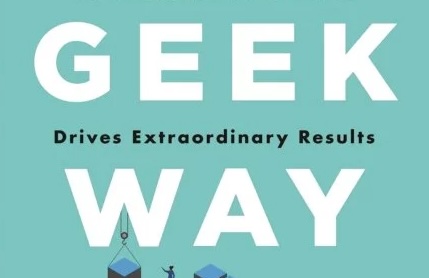This wisdom was handed to me by Corry Hong at Unicom when we were chatting about large government contracts.
“Small deals when you start, for your family and neighbors - they all work on handshakes. As you grow and are doing business for medium sized clients, there are lots of contracts, paperwork and litigation. Once you get past a certain size and are delivering on huge projects - it’s all about a handshake again.”
I thought it was some pretty weird advice at the time. I certainly have worked without a contract early in my career, but never since. Of course all business starts from a place of trust. If you don’t have a common goal and have faith in your client and partners, you are doomed to fail painfully. It felt like Corry was telling me something super basic I already knew. “Don’t screw over your clients, your reputation counts.” Well yes Corry, thanks.
Fast forward a few years and I now understand the much deeper wisdom Corry was trying to get through my thick head.
In the corporate world, at least below Fortune 100, contracts are generally documents that two teams are making with bright engaged lawyers to accurately describe the process and price around a process. There’s negotiation and deliberation about the details. Everyone tries to understand everything. You try to eliminate any areas where things could be misinterpreted or clauses that might be used to negate something else in the contract. It's rules for your relationship and as accurate a description as you can agree on for the process and product to be delivered.
Of course on huge deals there’s going to be a contract too. You’re going to need to know it well and you’re going to need clauses in there to protect things that are important to you. There's commitments in there and it's important to understand it. All of that said, particularly on government deals, there’s also going to be stuff in there that just doesn’t make sense.
Instead of working directly with the people who need and will eventually use your product/service, you’re working with a purchasing group that likes to add paperwork they believe will cover their ass. They aren’t high powered very well paid lawyers. They’re contracting officers and purchasing managers who will be there talking to some other vendor about something completely unrelated next week, and the week after that, until they retire with an amazing pension.
Maybe their boss's boss thinks some policy they have applies. That content is GOING to be in the contract. You’re not going to get to red-line that. You need to understand it, you can’t agree to things you must, but can not do. That said, you will have to accept a level of ambiguity and potential conflicting clauses that may be unsettling.
The contract will reference other standards, requirements, policies, guidelines - all sorts of stuff you’re going to need to understand at least the scope of the potential risk/requirements of. You’ll never be able change much of it, and a lot of it won’t apply.
For example, part of a contract I signed says I am not allowed to deliver raw fish and dairy to any Army base within 48 hours of each other. I run a software shop and this is part of a SaaS contract. Welcome to government work.
As one of my lawyers told me: “Franz if I try to find everything this document references and print it out, it will be a stack as tall as me. Sign this or don’t, but if you do - just keep them happy and don’t screw up.”
Sound advice. Given the complexity of the work that is happening on these deals, the only way to really deliver is to have a true foundation of trust with the person you’re delivering these promises to. Getting into an adversarial relationship here will be a bad game to play.
It’s all on a handshake. You better understand their real goals, and you better move heaven and earth to make them happen - whatever that contract might say.







